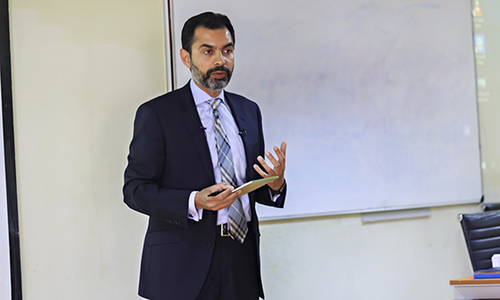
KARACHI: In a move that will doubtless trigger dismay across the business community, the State Bank of Pakistan (SBP) on Monday raised its policy rate by 150 basis points to 12.25 per cent, 50bps above market expectations.
The bank cited rising inflation as well as expectations of future inflation driven by a weak rupee, widening fiscal deficit and potential adjustments to the utility tariffs as the key drivers behind the rate hike.
The move follows a staff-level agreement with the International Monetary Fund (IMF) for a $6 billion bailout package, which is likely to be accompanied with tough conditions, including higher interest rates and commitments to roll over debts taken from China, Saudi Arabia and the UAE.
The agreement was preceded by a major reshuffle in the financial corridors resulting in the appointment of Reza Baqir, an economist associated with the IMF who replaced former SBP governor Tariq Bajwa.
This was the SBP’s first monetary policy statement released since Dr Baqir took office.
Policy rate hiked by 150bps to 12.25pc; govt borrows Rs4.8tr from SBP in first three quarters
The announcement date was moved forward by almost 10 days, a move seen by the markets as a rush to raise interest rates. “The [IMF] programme is designed to restore macroeconomic stability and support sustainable economic growth, and is expected to unlock considerable additional external financing,” the monetary policy statement read.
Continuing its tightening monetary stance amid the ongoing exchange rate movement and further increase in tariffs expected in the coming budget, the SBP has warned of significantly higher inflation throughout the next fiscal year.
Inflation eased from 9.41pc in March — the highest in five years — to 8.8pc in April. Average inflation reached 7pc in July-April fiscal year 2019, compared to 3.8pc in the same period last year.
The decline in the rupee’s value during the past two weeks and the lagged impact of previous bouts of depreciation pushed the prices of almost all essential items including flour, dates, meat, fruit etc during Ramazan.
The bank said the “inflationary pressures are likely to continue for some time”.
The policy statement added: “Inflation is expected to be in the range of 6.5pc to 7.5pc in the current financial year and it is anticipated to be considerably higher in fiscal year 2020. Inflation outlook is subject to a number of upside risks from an expected rationalisation of taxes in the upcoming budget, potential adjustments in electricity and gas tariffs, and volatility in international oil prices.”
The bank stated: “In addition, a greater reliance on central bank financing of the deficit has acted to dilute the impact of previous monetary tightening … The resulting increase in monetisation of the deficit has added to inflationary pressures.”
The SBP’s financing of the fiscal deficit resulted in increase of printed money leading to further inflationary pressures, said the monetary policy statement.
The government had borrowed Rs4.8 trillion from the SBP during the ongoing fiscal year, 2.4 times higher than the same period last year, as it is expected to book a considerably higher fiscal deficit during the first three quarters of the current fiscal year due to a decline in revenue collection, increase in security-related expenditures and higher interest-related payments.
On the external front, the current account deficit narrowed by $4 billion to $9.6bn during the July-March period but financing challenges rose despite significant bilateral inflows.
“The reduction is mainly driven by import compression and a healthy growth in workers’ remittances. [However,] this impact was partially offset by higher international oil prices. The non-oil trade deficit declined from $13.7bn in July-March FY18 to $11bn in the first nine months of 2018-19 reflecting the impact of stabilisation policies implemented so far,” the SBP policy statement explained.
Pakistan’s foreign exchange reserves have already fallen to $8.8bn — enough to cover three months of imports — despite bilateral inflows from China, Saudi Arabia and the UAE.
“Despite improvement in the current account and a noticeable increase in official bilateral inflows, the financing of the current account deficit remains challenging,” the SBP pointed out.
The recent exchange rate fluctuation reflects the underlying pressures on the local currency that has depreciated by 5.9pc since the last monetary policy announcement hitting record low of Rs150 against the greenback last week.
Forex Association of Pakistan President Malik Bostan told Dawn that the rupee remained under pressure losing another Rs3 to close at Rs151 in the interbank market from Rs148 on Friday mainly due to high demand for dollars from importers. “In the open market the local currency was selling at Rs151 from Rs150 on Friday,” he added.
“In SBP’s view, the recent movement in the exchange rate reflects the continuing resolution of accumulated imbalances of the past and some role of supply and demand factors.”
However, the bank said it “will continue to closely monitor the situation and stands ready to take measures, as needed, to address any unwarranted volatility in the foreign exchange market.”
The government has not shared the details regarding the terms of agreement with the IMF yet, but experts believe that increasing cost of living, slowdown in agriculture economy and diminishing buying power of the local currency are likely to be a challenge for the government.
Published in Dawn, May 21st, 2019













































